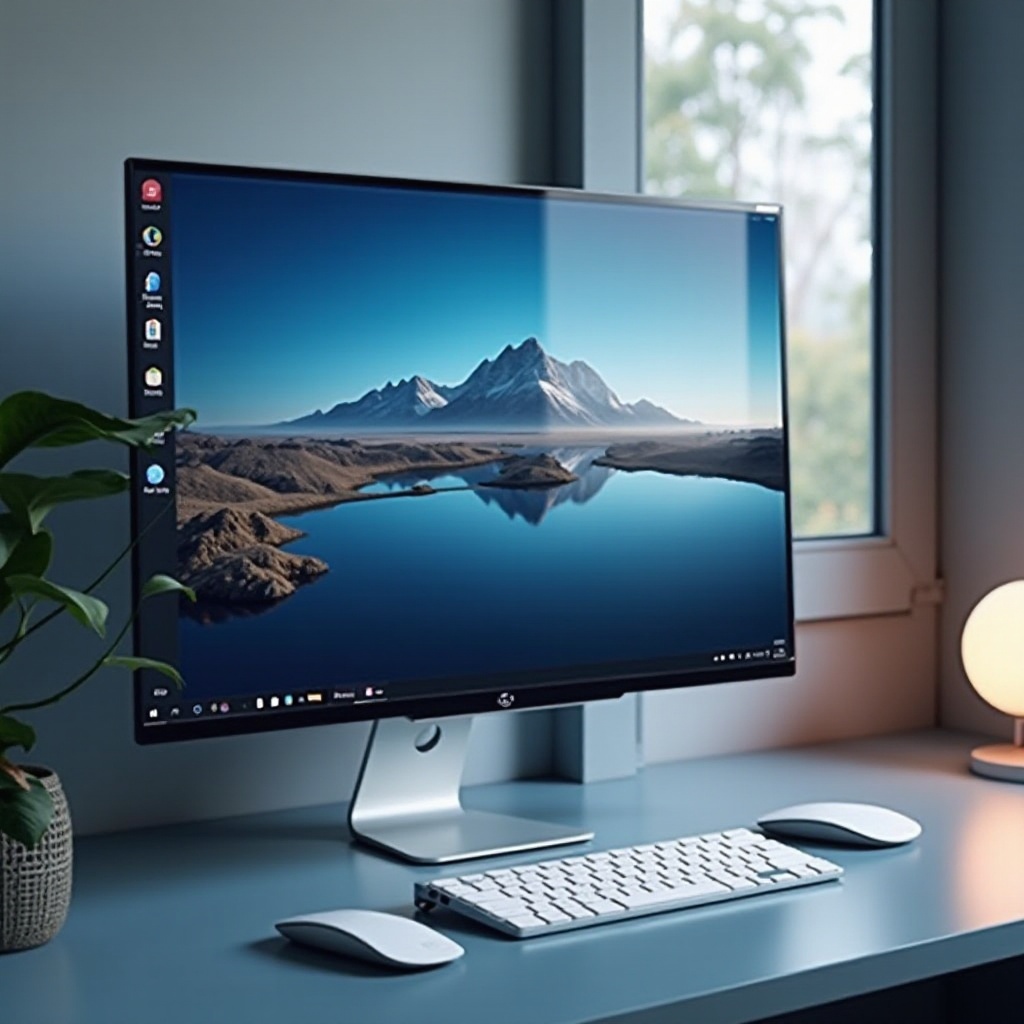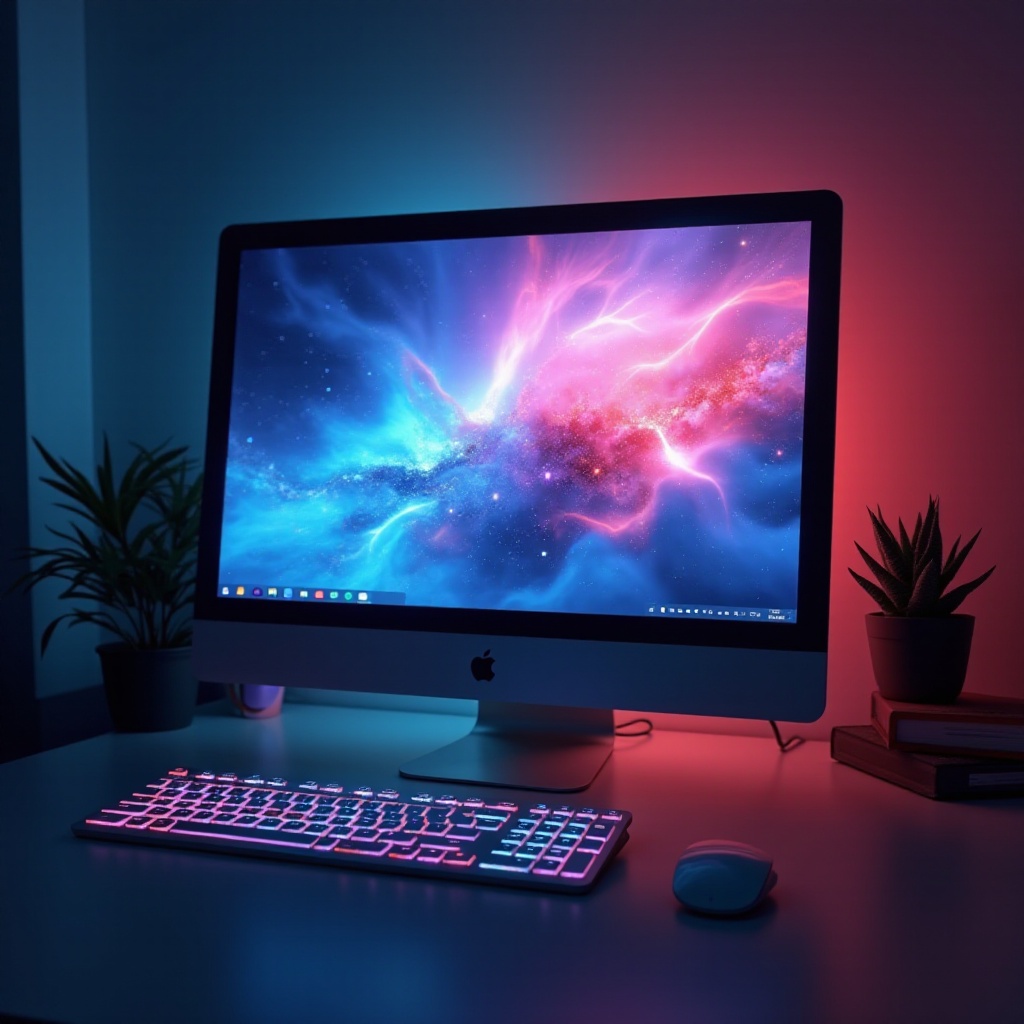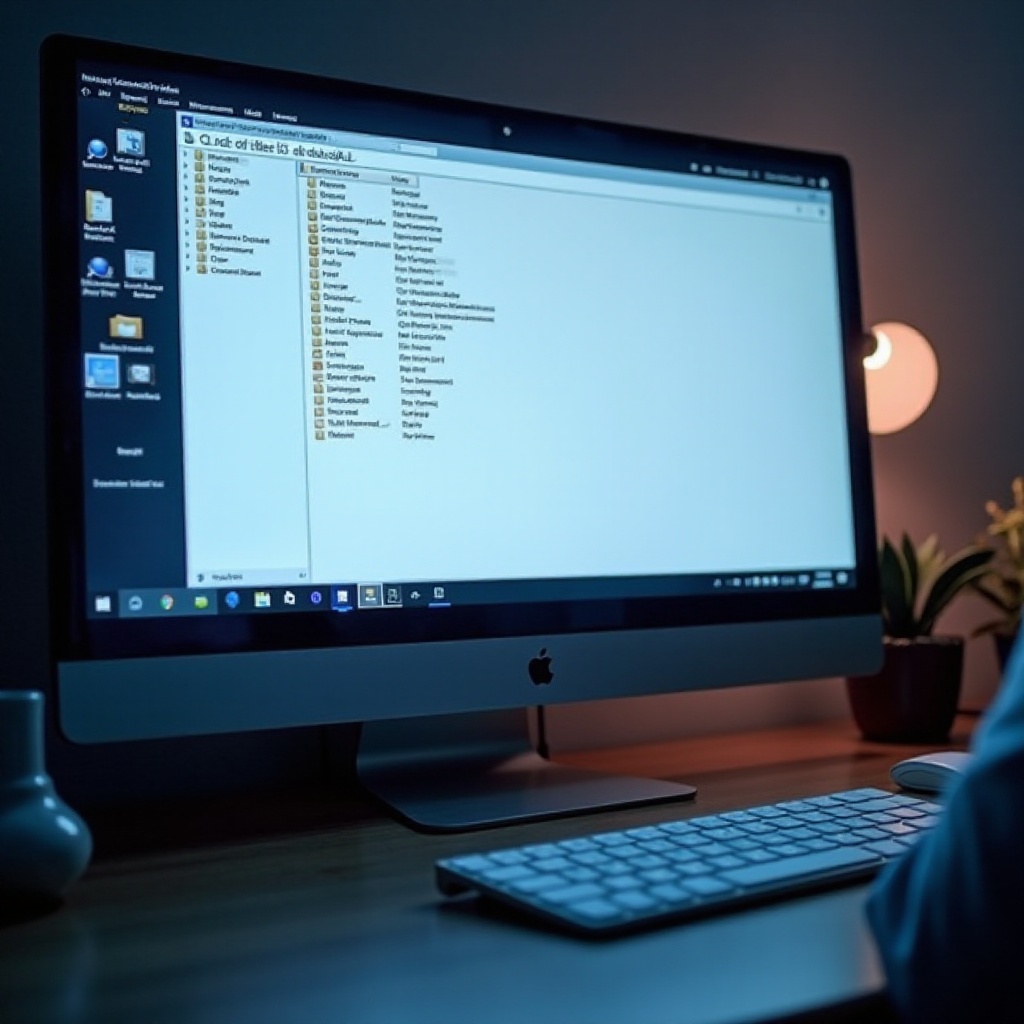Introduction
The taskbar is an indispensable component of the Windows interface, used every time you interact with your PC. Over time, its static appearance can feel uninviting, prompting user interest in aesthetic transformation. A transparent taskbar is a stylish and popular customization that can rejuvenate your desktop by making it more visually engaging and tailored to your tastes. In this comprehensive guide, we delve into the different techniques to achieve a transparent taskbar using built-in Windows settings, third-party applications, and advanced registry editing.

Why Opt for a Transparent Taskbar?
The decision to transition to a transparent taskbar extends beyond simple aesthetics. It’s an opportunity to craft a workspace that speaks to your individuality. A transparent taskbar enables your intricate desktop wallpaper to take center stage, creating an unobtrusive surface that complements your overall visual theme seamlessly. This subtle upgrade contributes to a sleek, modern look, potentially minimizing visual chaos, thus enhancing attention to tasks at hand. Whether you are embarking on a work-from-home project or leisurely exploring your computer, a thoughtfully customized taskbar can significantly improve your user experience.
Method 1: Customizing with Windows Built-in Settings
Access Center for Taskbar Customization
For users seeking straightforward customization, Windows natively offers settings to enhance the transparency of the taskbar. Follow these steps:
- Right-click on a blank section of your taskbar.
- Select ‘Taskbar settings’ from the menu.
Once you gain access to taskbar settings, you’ll discover an array of customization choices, one of which includes the ability to adjust transparency.
Tailoring Transparency Through Windows Settings
The procedure to enable transparency is simple and swift:
- From Taskbar settings, click on ‘Personalization’ on the left sidebar.
- Navigate to ‘Colors’ within the Personalization options.
- Locate the ‘Transparency effects’ toggle and switch it on.
After activation, your taskbar will inherit a transparent finish, integrating effortlessly with your desktop’s aesthetics. This native method is convenient and does not necessitate external software, catering to most users with ease.
Method 2: Third-Party Software for Enhanced Customization
Exploring Options with Third-Party Tools
While Windows settings offer a direct solution, some users might seek more refined or varied transparency effects, which third-party applications provide. These tools often deliver enhanced controls, meeting the needs of those eager for detailed customization of their taskbar’s transparency.
Comprehensive Guide Using TranslucentTB
A prevalent third-party utility acknowledged for its adept functionality is TranslucentTB. Here’s how you can proceed:
- Download and install TranslucentTB from credible sources or directly from the Microsoft Store.
- Launch the software post-installation.
- Explore the array of transparency modes, including blur, clear, and acrylic, to apply your desired style.
With various settings available, TranslucentTB facilitates unique personalization. Being lightweight, it efficiently operates in the background, preserving your system’s performance.
Security Notes and Best Practices
While incorporating third-party software, observe these precautions:
- Ensure downloads stem from reputable platforms to avert malware threats.
- Back up significant data prior to modifications.
- Assess permission requirements diligently.
Applying these practices enhances customization capabilities while safeguarding system integrity.

Method 3: Registry Editor for Advanced Users
Important Considerations
Registry editing is potent and recommended for users adept at navigating system internals. Adorn the taskbar with transparency by meticulously following steps, ensuring registry backups to safeguard against erroneous amendments.
Precise Steps for Registry Adjustment
- Press
Win + Rto invoke the run dialog. - Enter ‘regedit’ and confirm with Enter, granting requisite changes.
- Traverse to:
HKEY_LOCAL_MACHINE\SOFTWARE\Microsoft\Windows\CurrentVersion\Explorer\Advanced - Create a new DWORD (32-bit) Value called
UseOLEDTaskbarTransparency. - Assign it a value of
1. - Finalize by exiting the editor and rebooting your system.
These actions assure a perceptible shift in taskbar transparency, ideal for advanced customization endeavors.
Troubleshooting for Optimal Functionality
Encounter issues? These restorative measures may assist:
- Scrutinize registry entries to rectify possible typographical slip-ups.
- Deploy backup restoration for original settings.
- Employ system restore if issues persist, to negate potentially unwanted changes.
The outlined troubleshooting avenues offer stabilization and rapid recovery solutions.

Additional Customization Insights
Elevating Taskbar Visuals
For those inclined to elevate their taskbar’s appeal, consider employing themes harmonious with transparency, possibly magnifying contrast for accentuation. Wallpapers featuring minimalistic or bold accents can enhance visibility.
Harmonizing with Broader Aesthetic Tweaks
Integrate taskbar transparency with broader UI modifications, such as revamped icons or informational widgets, to cultivate a comprehensive and cohesive digital landscape.
Conclusion
Adapting your taskbar into a transparent interface imbues a modern, elegant aspect to your desktop setup. Whether achieved through Windows settings, bespoke software, or intricate registry editions, every user level can engage in this personalization opportunity. Revel in a refreshed desktop vista, marrying functionality with aesthetic allure.
Frequently Asked Questions
How can I revert to a solid taskbar if I don’t like the transparency?
To revert, access taskbar settings in Windows, navigate to ‘Colors,’ and switch off ‘Transparency effects.’
Will making my taskbar transparent affect computer performance?
Typically, transparency effects have minimal impact on modern systems. However, older machines may see slight performance reductions.
Are there risks involved in using third-party software for transparency?
Yes, there can be risks like malware. Ensure you download trusted software and back up your system before changes.
